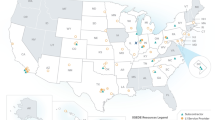Abstract
ICT costs have been traditionally assessed using well-established methods such as full cost accounting or total cost of ownership. Within their specific, optimal application areas they provide very good tools for cost follow-up and strategic decision-making. However, as the scale and complexity of the system being analysed grows, these methods become less suitable. In particular, due to the complex funding structures, and the multi-supplier and cross-country nature of service provision, estimating the total costs of European computing services for research is perhaps one of the best examples of such complex, large-scale systems. Solving this challenge is crucial for the sustainability of these services: besides obvious technical budgeting challenges, difficulties in comparing the cost-effectiveness of different service delivery options make sustaining public support for funding more arduous than it should be. This paper presents a novel cost assessment methodology that addresses the above challenges and uses an in-depth analysis of the pan-European computing e-Infrastructure costs as a case study illustrating the use of the methodology. We also use this case study as an illustration of the kind of cost assessment issues that high-utilisation rate computing services should consider when choosing between different infrastructure options (for example comparing costs per core hour of in-house resources and public Cloud offerings).
Similar content being viewed by others
References
Carlyle, A.G., et al: Cost-effective HPC: the community or the cloud. IEEE Conference on Cloud Computing Technology and Science (2010)
e- IRGSP2 EU deliverable D4.3 - Final legal issues report public, Members of the e-IRGSP2 Consortium, 28/01/2011
European Commission, Digital science in Horizon 2020, March 2013, http://ec.europa.eu/information_society/newsroom/cf/dae/document.cfm?doc_id=2124
European Grid Infrastructure (EGI), www.egi.eu
Hammond, M., Hawtin, R., Gillam, L., Oppenheim, C.: Cloud computing for research. Final Report, Curtis + Cartwright Consulting Ltd (7/7/2010) (2010)
Hawtin, R.M. Hammond, Gillam, L., Curtis, G.: Cost analysis of cloud computing for research (2012). Final Report to EPSRC and JISC, 22/2/2012, Curtis + Cartwright Consulting Ltd
Juve, G., Deelman, E., Berriman, G.B., Bergman, B.P., Maechling, P.: An Evaluation of the Cost and Performance of Scientific Workload on Amazon EC2. J. Grid Comput. 10(1), 5–21 (2012)
Kashef, Altmann: A cost model for Hybrid Clouds. In: Vanmechelen, K., Altmann, J., Rana, O.F. (eds.) GECON 2011, LNCS 7150, pp 46–60 (2012)
Magellan Final Report, December 2011 30. (http://science.energy.gov/~/media/ascr/pdf/program-documents/docs/Magellan_Final_Report.pdf)
Marston, et al: Cloud computing — The business perspective. Decis. Support. Syst. 51, 176–189 (2011)
Message-Passing Interface (MPI) specification: http://www.mpi-forum.org/.
Michelotto, M., et al.: A comparison of HEP code with SPEC benchmarks on multi-core worker nodes. J. Phys. Conf. Ser. 219, 052009 (2010)
Misra, S.C, Mondal, A.: Identification of a company’s suitability for the adoption of cloud computing and modelling its corresponding return on investment. Math. Comput. Model. 53(3-4), 504–521 (2011)
NAS Parallel Benchmarks: http://www.nas.nasa.gov/Resources/Software/npb.html (accessed 25/05/2011)
Nazir, A, Sørensen, S.-A.: Cost benefit analysis of high performance computing infrastructuresPaper presented in Service Oriented Computing and Applications (SOCA) 2010 IEEE International Conference, Vol. 2010
OpenMP specification: http://openmp.org (accessed 25/05/2012)
Opitz, A., König, H., Szamlewska, S.: What does grid computing cost? J. Grid Comput. 6(4), 385–397 (2008)
Partnership for Advanced Computing in Europe (PRACE) [REF www.prace-ri.eu]
Risch, M, Altman, J.: Cost analysis of current grids and its implications for future grid markets. In: Altmann, J., Neumann, D., Fahringer, T. (eds.) GECON 2008, LNCS 5206, pp 13–27 (2008)
Smith, Preston M.M.S.: Purdue University, May 2011. A Cost-Benefit Analysis of a Campus Computing Grid. Major Professors: Jeffrey J. Evans, Kevin C. Dittman, and Carol X. Song
Truong Huu, T., Koslovski, G., Anhalt, F., Montagnat, J., Vicat-Balnc Primet, P.: Joint Elastic Cloud and Virtual Network Framework for Application Performance-cost Optimization. J. Grid Comput. 9(1), 27–47 (2011)
University of Washington Hyak Operating Costs and Comparison with Commercial Alternatives, http://escience.washington.edu/get-help-now/hyak-operating-costs-and-comparison-commercial-alternatives (accessed 18/07/2011)
Walker, E.: The real cost of a CPU hour. Computing Practices 43(4), 35–41 (2009)
Author information
Authors and Affiliations
Corresponding author
Rights and permissions
About this article
Cite this article
Heikkurinen, M., Cohen, S., Karagiannis, F. et al. Answering the Cost Assessment Scaling Challenge: Modelling the Annual Cost of European Computing Services for Research. J Grid Computing 13, 71–94 (2015). https://doi.org/10.1007/s10723-014-9302-y
Received:
Accepted:
Published:
Issue Date:
DOI: https://doi.org/10.1007/s10723-014-9302-y




